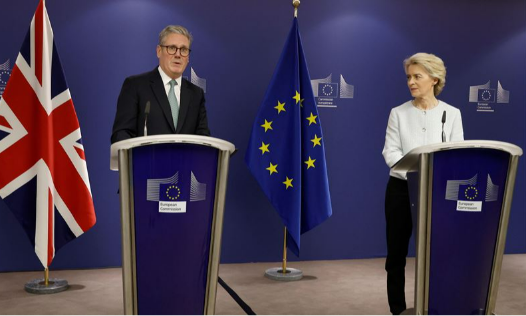Payment is being processed. Please do not refresh or close this page until your payment is complete.
 Book an Appointment
Book an Appointment

The United Kingdom and the European Union are currently at odds over a proposed youth mobility scheme aimed at facilitating temporary work and study opportunities for individuals aged 18 to 30 across both regions. This initiative, championed by the EU, seeks to rebuild post-Brexit ties and provide young people with cultural and professional exchange opportunities.
EU's Proposal
The European Commission has proposed a reciprocal arrangement allowing young EU and UK citizens to live and work in each other's territories for up to three years. This scheme is modeled after the UK's existing youth mobility agreements with countries like Australia and New Zealand. The EU views this as a step toward strengthening diplomatic relations and fostering mutual understanding among the younger generations
UK's Position
Despite the EU's overtures, the UK government has expressed reservations. Home Secretary Yvette Cooper has stated that such a scheme is not currently part of the government's plans, emphasizing the need to reduce net migration numbers . Prime Minister Keir Starmer's administration has also ruled out reintroducing any form of free movement, a core principle of the EU, to avoid undermining the outcomes of the Brexit referendum .
Internal Government Debate
Within the UK government, there is a divergence of opinions. Chancellor Rachel Reeves supports the youth mobility scheme, citing potential economic benefits such as addressing labor shortages in sectors like hospitality and contributing to GDP growth. Conversely, concerns persist about the potential for increased immigration and the political implications of appearing to reverse Brexit-related policies .
EU's Flexibility
In response to UK concerns, the EU has shown willingness to adapt the proposal. Modifications include emphasizing the temporary nature of the scheme and reducing initial demands to make the agreement more palatable to UK policymakers.
Future Outlook
The youth mobility scheme is expected to be a significant topic at the upcoming UK-EU summit in London on May 19. While the UK remains cautious, the EU continues to advocate for the initiative as a means to enhance bilateral relations and provide opportunities for young people on both sides